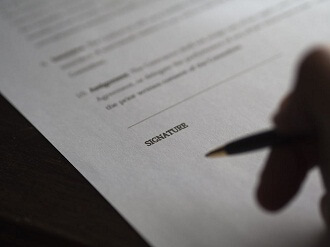Inheritance Disputes: How to Prevent Your Will From Being Challenged After Your Death
Inheritance Disputes: How to Prevent Your Will From Being Challenged After Your Death

With the number of will-related disputes increasing in recent years, what can you do now to try to prevent your Will from being challenged after your death?
Catherine O’Reilly, a family law solicitor and expert adviser around contentious wills provides some useful pointers:
1.Be open about your will and what your intentions are after your death
Sometimes wills are contested simply due to a lack of knowledge between family members who may not have spoken in several years. If you are open about your intention, this may help to prepare your family for what is set out in your will and avoid a shock in years to come.
2.Make sure the will is valid
To be valid, a will should be (although these may not apply in certain very limited situations):
- In writing;
- Signed by the person making the will, or by someone else who they have directed to sign the Will on their behalf in their presence;
- Clear that it is intended to be a will;
- Signed or the signature acknowledged by the will-maker in the presence of two or more witnesses present at the same time; and
- Each witness must sign the will in the presence of the person making the will.
3.Obtain a report testifying to your ‘testamentary capacity’ when the will is made.
If you are elderly or have been diagnosed with a condition that affects capacity, for example dementia, (even if this is not yet in the later stages) having a report prepared by a medical professional that states that you are of sound mind to make a will and arranging for a medical professional to be one of the witnesses, will be of great assistance in heading-off potential claims further down the line.
4. Ensure your Will is in a safe place and your Executors know where it is.
If an original will cannot be found after death, this often leads to a presumption that the will was revoked by the will-maker. This could result in your estate being distributed according to the terms of an earlier will or, if nothing can be found, by the rules of intestacy, which could result in your estate not passing as you would wish it to.
Your solicitor will be able to securely store your will and provide you with a copy for your own records. It is important to let your executors know where this is held and leave a clear note with your own files.
Act early and keep your will up to date
Many people put off making a will until urgent circumstances demand it, which can lead to instructions being given in a rush with the will-maker not able to fully consider what they are looking to achieve in good time. It is important to make a will early and to review this on a regular basis and when your financial or personal circumstances change, for example on marriage, divorce or after the birth of a child.
Keep a full note of your wishes
It is important to be thorough when discussing your will with your solicitor so that they can keep a full note for your file. If you are considering leaving someone out of your will, who may (whether rightly or not) be expecting to benefit from your estate, it is important to raise this and go through your reasons in detail. This is also important if you are making significant changes from a previous will.
Be aware of potential claims under the Inheritance (Provision for Family and Dependants) Act 1975
Do get advice from a lawyer if you are looking to make a will where relatives or other connections are not a beneficiary and may potentially have a case to contest under specific inheritance law.
Destroy any earlier wills
Although they may be revoked by the most recent will made, to avoid any uncertainty or confusion after your death, your earlier wills should be destroyed.
Avoid the potential for undue influence
Your will must reflect your wishes – you should make the arrangements for the will yourself, avoid any beneficiaries or other family members contacting the solicitor on your behalf or being present when you give instructions for the will or even when this is signed.
Contact our wills, trusts and probate experts today
If you still haven’t finalised your last wishes or would like to write a new will, contest a will, want to leave money in trust for a young relative, or are struggling with probate issues, please call us on 03456 381381. Alternatively, email us at estatemanagement@ibblaw.co.uk.
